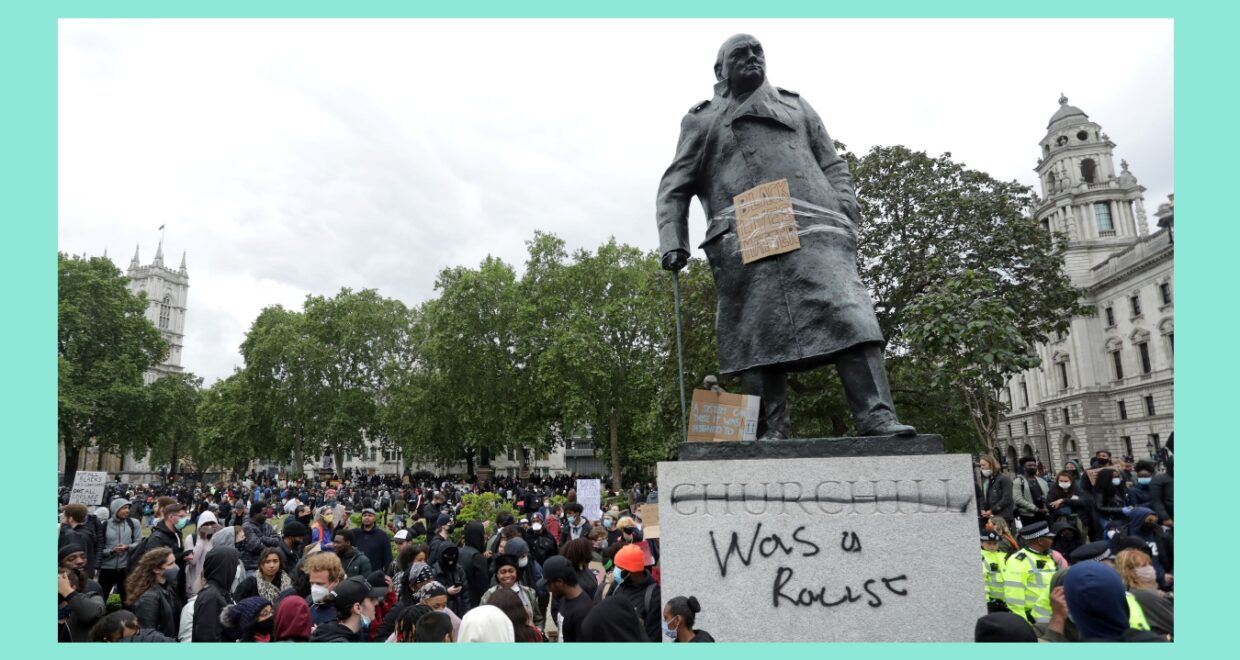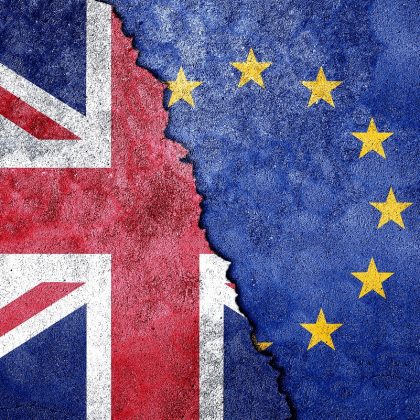From Brexit to Environmental Destruction: Understanding Modern Britain with James Vernon
A Q&A with Professor James Vernon, author of Modern Britain, 1750 to the present, out now in a fully revised 2nd edition.
What inspired you to write a book on the history of Modern Britain?
There were two motivations.
I was interested in rescuing national histories from the nativism of the right. Of course, in Britain that virulent type of nationalism swept the country with Brexit, but across the world authoritarian populists have also evoked nativist histories that they promise will make their country great again. I wanted to provide an alternative history of Britain that acknowledged the centrality of slavery and imperialism to the national past while also recognizing how British history was often a product of world events.
The other ambition was to produce a book that would help students better understand the country and the world they live in. To do that I grounded the history in an account of the rise, fall and reinvention of liberal political economies that determined how markets, governments and empires should work. In doing so I am trying to remind Britons they have had a bad deal as promises of emancipation – whether in their liberal, social democratic or neoliberal forms – have repeatedly enshrined new forms of government and exploitation.
How did you approach covering such a big timespan and region?
Writing the history of modern Britain and its Empire from 1750 to the present is certainly a big job! The book could easily be twice the size, and the most difficult aspect of writing it was coming to terms with what had to be left out. Probably the trickiest part was trying to embed the history of British imperialism in the book while remaining focused on Britain and its constituent nations not the history of its many former colonies.
What was your process when writing the new edition? What did you change?
I rewrote the Preface and added an entirely new Epilogue that takes the history from the financial crisis of 2007/8 up to the present. Every chapter has also been revised to sharpen the writing and to emphasize the key themes of environmental degradation, fears of democracy and a loss of sovereignty, and to increase the representation of minoritized people of colour. There is also an entirely new online Student Manual that provides summaries of chapters, study questions, and links to sources and websites so students can do further reading and research.
What makes the book engaging for students?
Unusually for a textbook I foreground a set of arguments that will provide students with a fresh perspective on the history of modern Britain. This is not the version of British history that people are taught in schools and universities across the UK, or for that matter in colleges across the USA. I hope the material is also engaging and each chapter has a series of textboxes that highlight particular people, places and sources.
What challenges face historians of modern British history?
There are too many! The most important for those starting their careers is institutional. Outside Britain the number of positions in British history is rapidly declining, while in the UK the perilous state of university funding means many are forced into precarious positions or are losing their jobs. To me there are several intellectual challenges: how to provide a history of a nation that recognizes the ways in which the world made Britain, not Britain the world; how to foreground questions of political economy without losing the insights of cultural history and intersectional analysis; and how to grapple with Britain’s outsized role in environmental destruction at home and overseas.
How did your teaching experiences influence the book?
Massively. I have spent almost 35 years teaching the history of modern Britain on both sides of the Atlantic and over those years my students have taught me how to present material in an engaging way. This book is a culmination of my entire professional life thinking and writing about Britain and what still makes its history important to understanding the world we live in today. The Student Manual also contains lots of material I have discussed with students in class and used to help with their own research and writing.
How did you get started in your career? What made you decide to go into academia?
I was lucky enough to have fabulous teachers that taught me that the point of studying history was not just to understand how the world has changed but how we can and must change the world. For me writing history is a type of activism, I want to use the past to make sense of the present and try to imagine a better future. I think of myself as more of an activist than an intellectual. I did not come from a well-educated family, my eldest sister was the first to stay in school until 18 let alone go to university. I suffered badly from imposter syndrome but after my PhD I was very lucky to get a postdoctoral fellowship and eventually a job in a department that had suffered badly from the cuts of the 1980s and not appointed anyone for a decade. It was terrifying learning to teach but my students were amazing and I quickly realized that was the part of the job that I most valued.
What advice do you have for early-career academics? Find good mentors, build a community around yourself, do not forget it’s a job not a vocation, and always speak truth to power.

Modern Britain,1750 to the present 2e is out now.

About the author: James Vernon is the Helen Fawcett Distinguished Professor of History at the University of California, Berkeley. He has taught the history of modern, imperial, Britain for over thirty years on both sides of the Atlantic, and is the author and editor of several historical works on modern British history.






